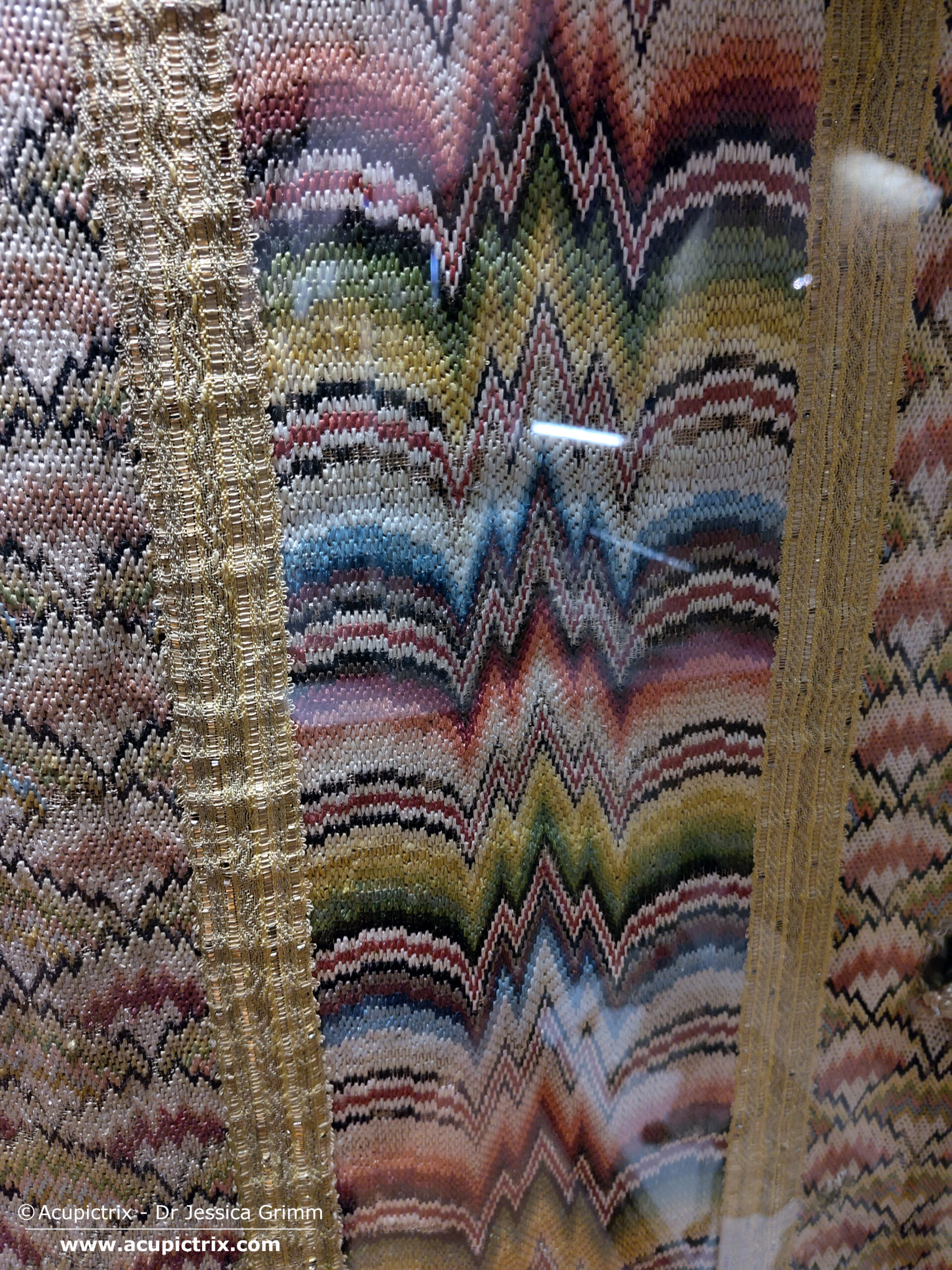Your basket is currently empty!
Category: Period
-
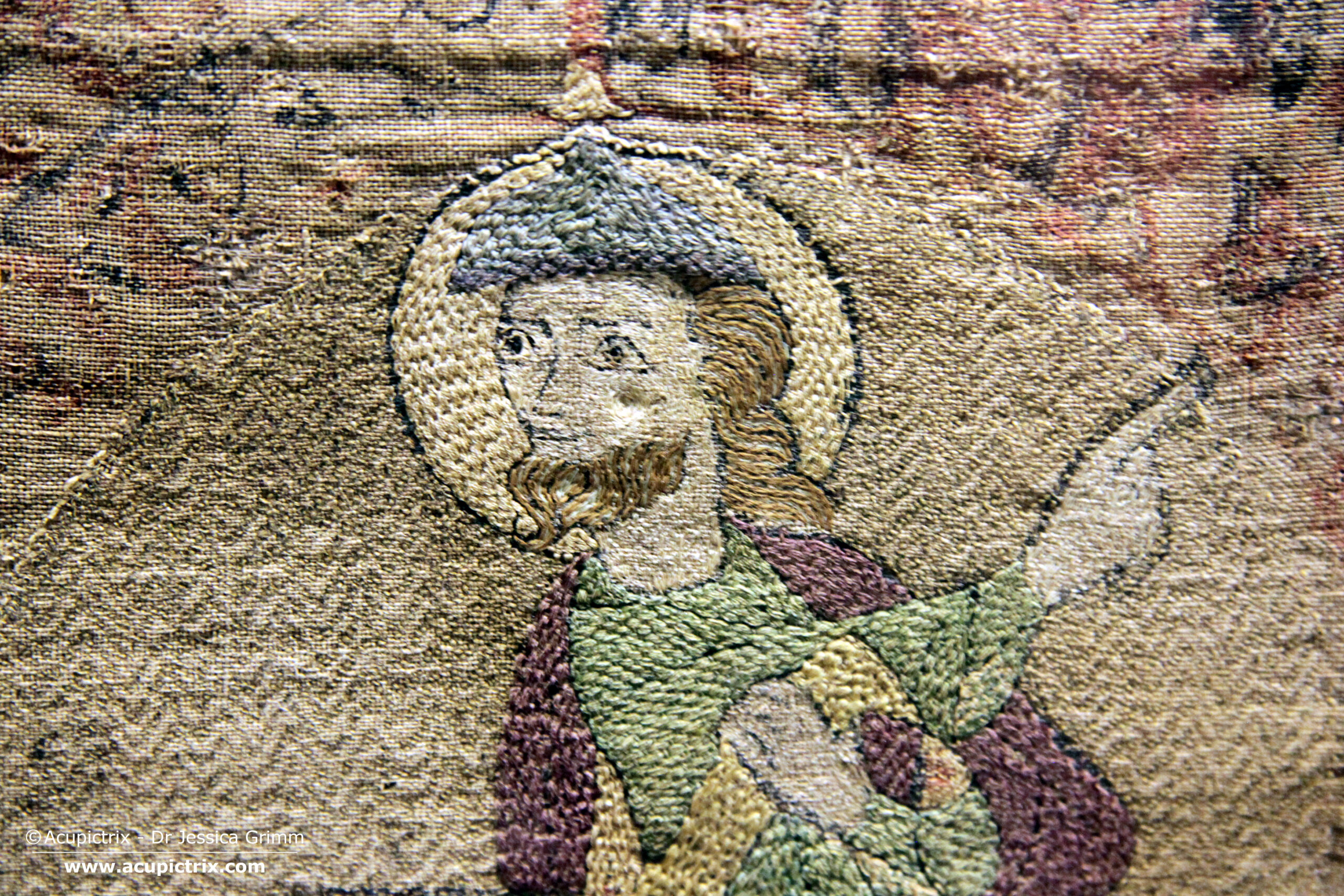
Over the past couple of weeks, we have explored several pieces of medieval goldwork embroidery housed in the Cathedral Treasury of Anagni, Italy. Around AD 1300, Pope Boniface VIII gifted his hometown Cathedral spectacular Opus anglicanum, Opus cyprense and Opus romanum paraments. He also gave a beautifully embroidered antependium. Unfortunately, there’s no record of where…
-
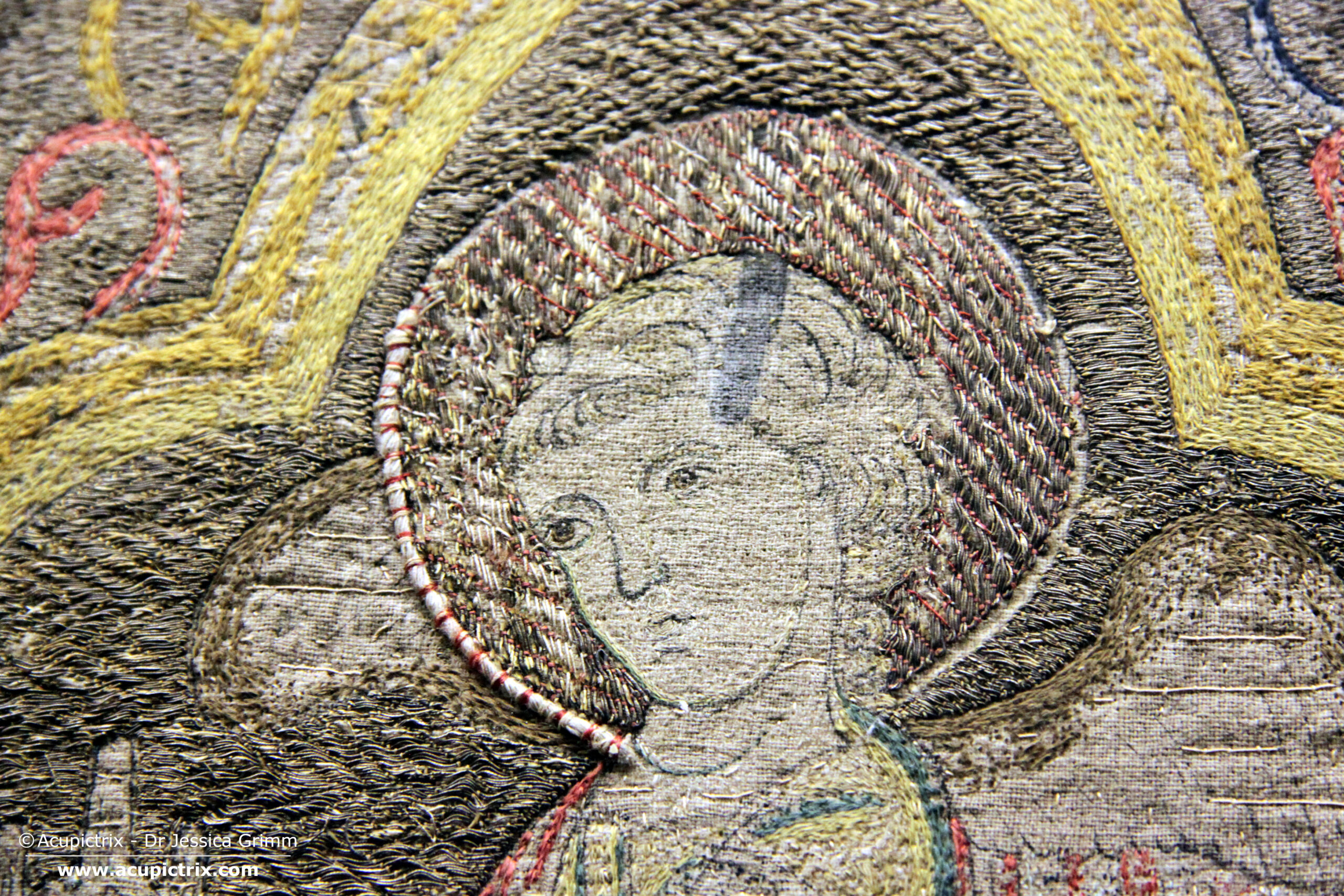
This week, we will look at an Opus romanum antependium from the late 13th century kept in the Cathedral treasury of Anagni, Italy. Just like with the Opus cyprense goldwork embroideries from last week, their provenance isn’t as clear-cut as the name Opus romanum suggests. This antependium was never historically referred to as Opus romanum.…
-
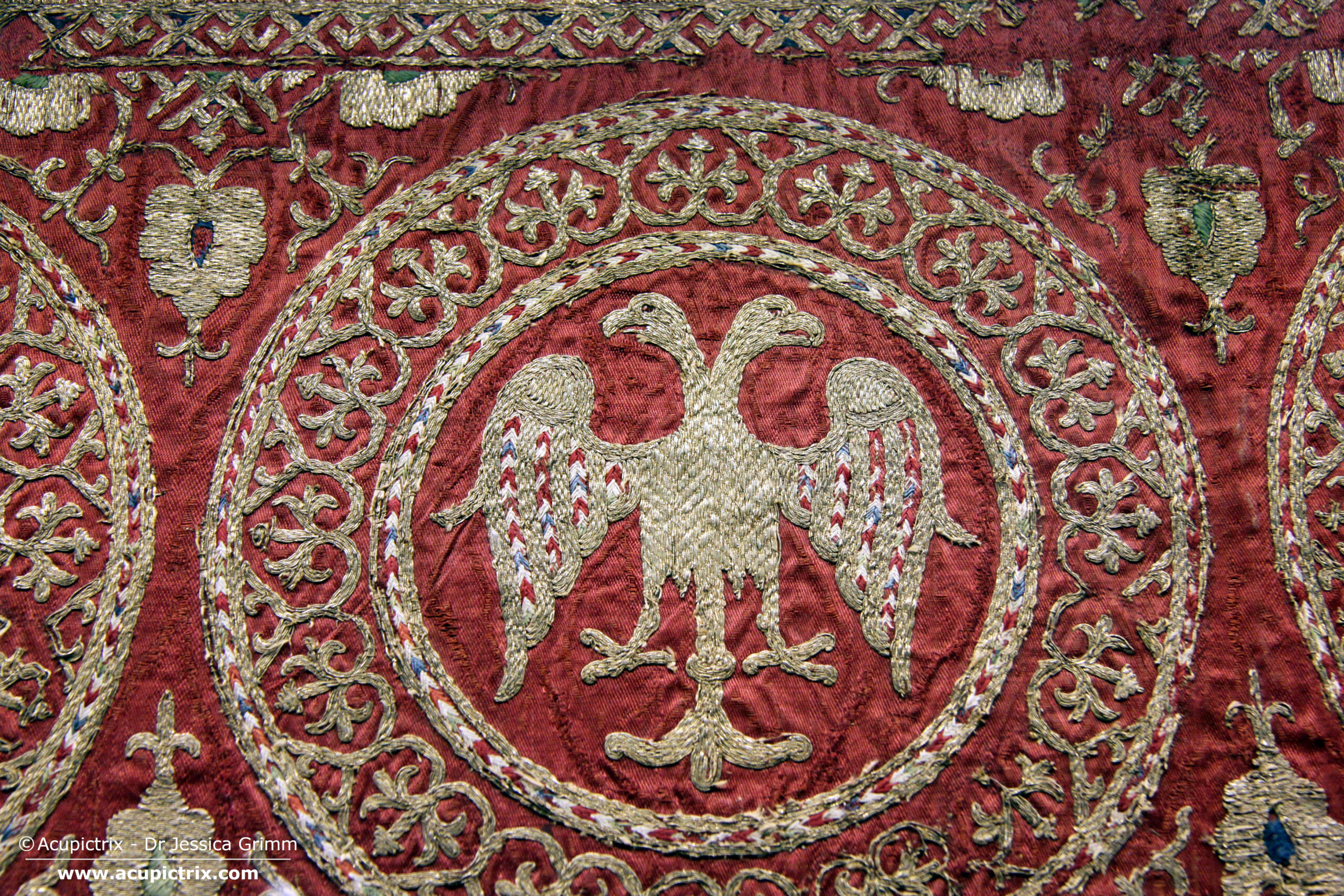
Where does Opus cyprense medieval goldwork embroidery come from? Simple question, right? After all, Opus anglicanum comes from England, and Opus teutonicum comes from Germany. Thus, Opus cyprense should come from Cyprus! Maybe. Medieval and later church inventories do mention vestments as being Opus cyprense. However, there has been relatively little research conducted on the…
-

Last week, I probably located a beautiful late medieval goldwork embroidery cope in the Dommuseum Frankfurt to its original church in the Netherlands. This week, I will introduce you to a stunning chasuble cross in the Diocesan Museum Osnabrück, Germany. This is one of these pieces of high-end late medieval goldwork embroidery that not many…
-
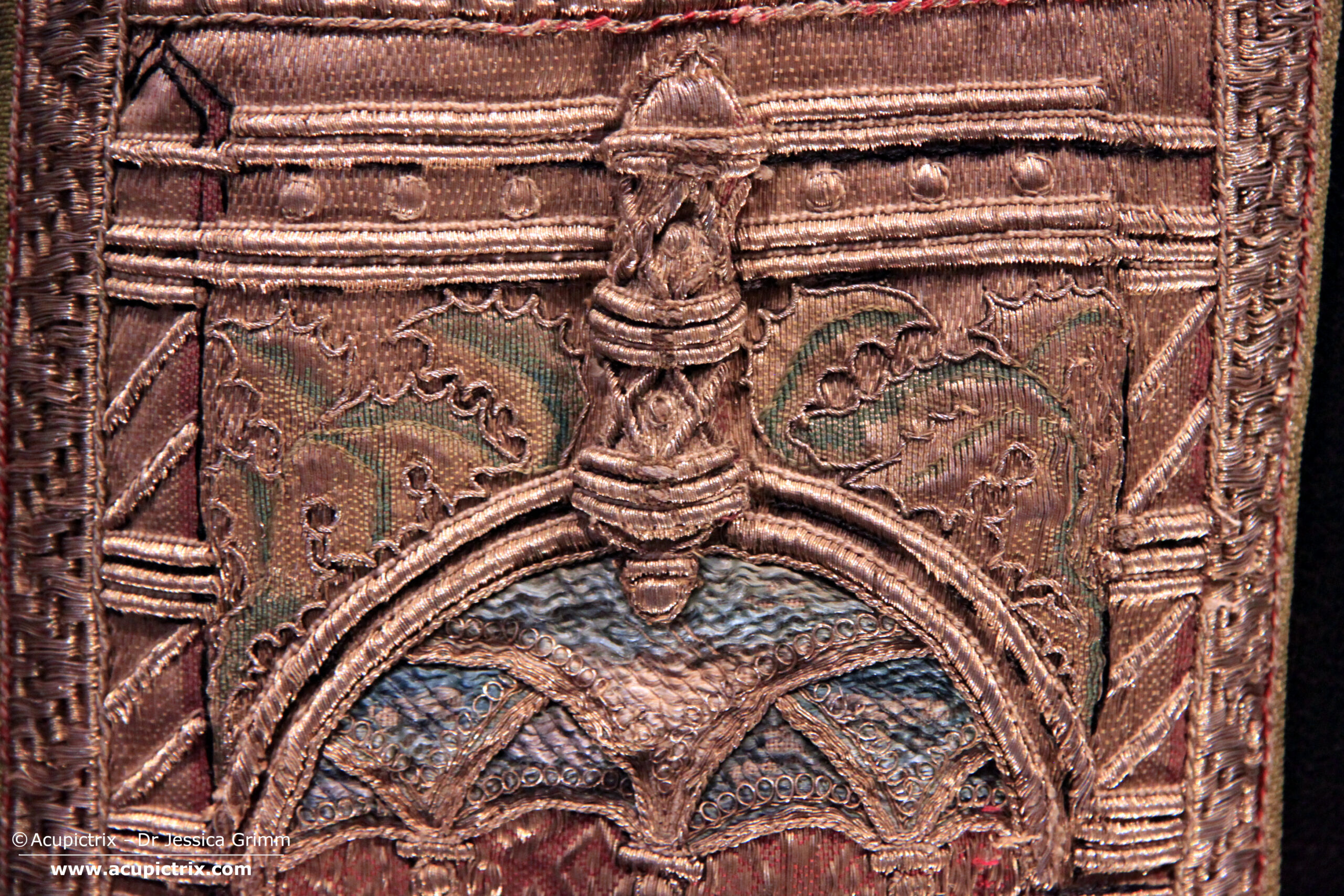
This week, we continue our exploration of late medieval goldwork embroidery from the Netherlands. I made an exciting discovery on a cope kept at the Dommmuseum Frankfurt in Germany. The Dutch dalmatics I showed you last week ended up in a museum collection in Italy after they were bought at auction. This week’s Dutch cope…
-
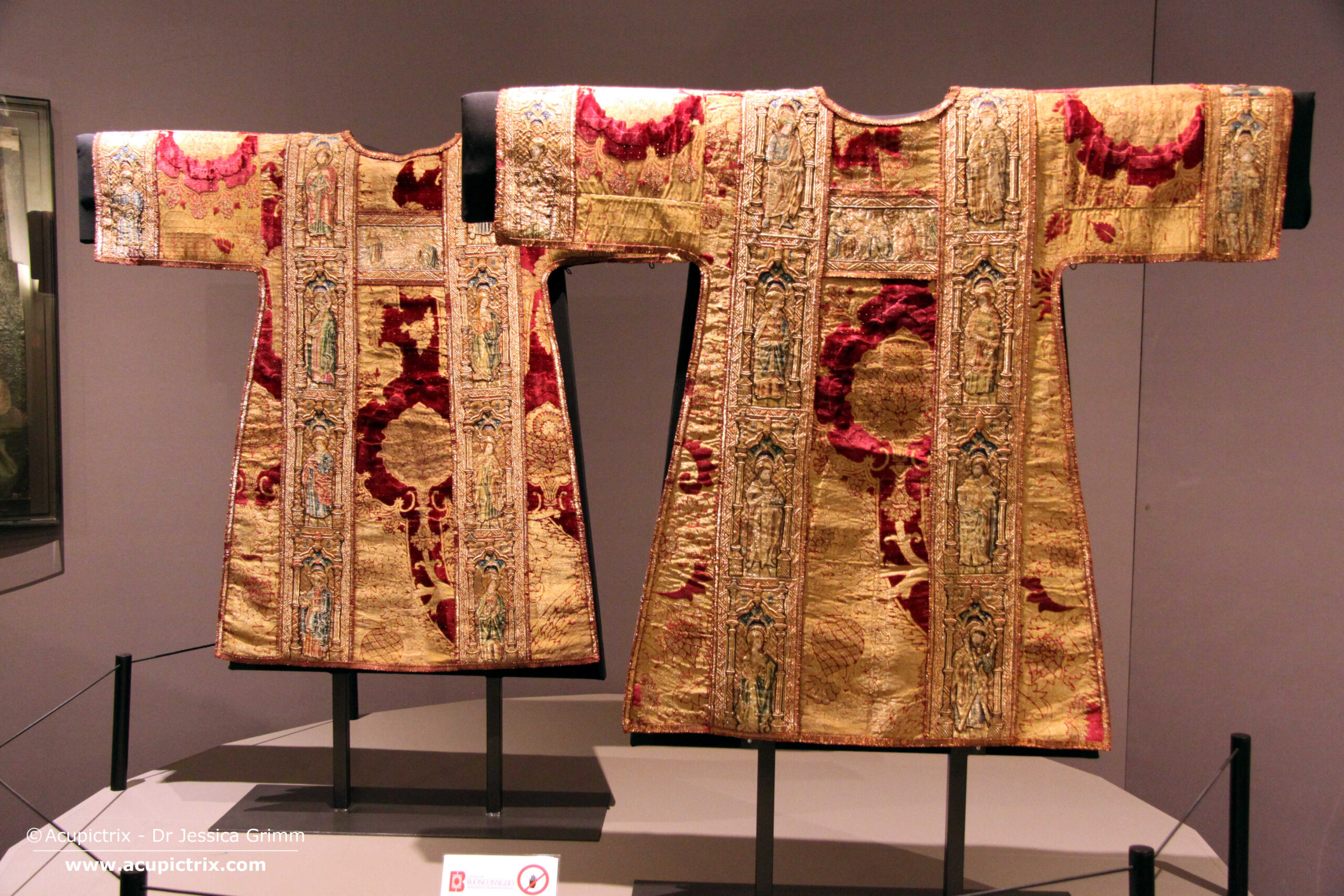
This month, we will focus on late medieval goldwork embroidery from the Netherlands. These can be found in collections and church treasuries all over the world. Like Opus anglicanum in earlier times, late medieval goldwork embroidery from the Low Countries was highly sought after. The embroidery workshops in major centres such as Utrecht, Amsterdam and…
-

In this medieval embroidery tutorial, I will show you how to recreate the lovely female face with the big braids as seen on this 15th-century chasuble. You will practice silk embroidery, padding and beading when recreating this lovely beaded stumpwork portrait of a female saint. Whilst working the medieval embroidery sample using the tutorial on…
-
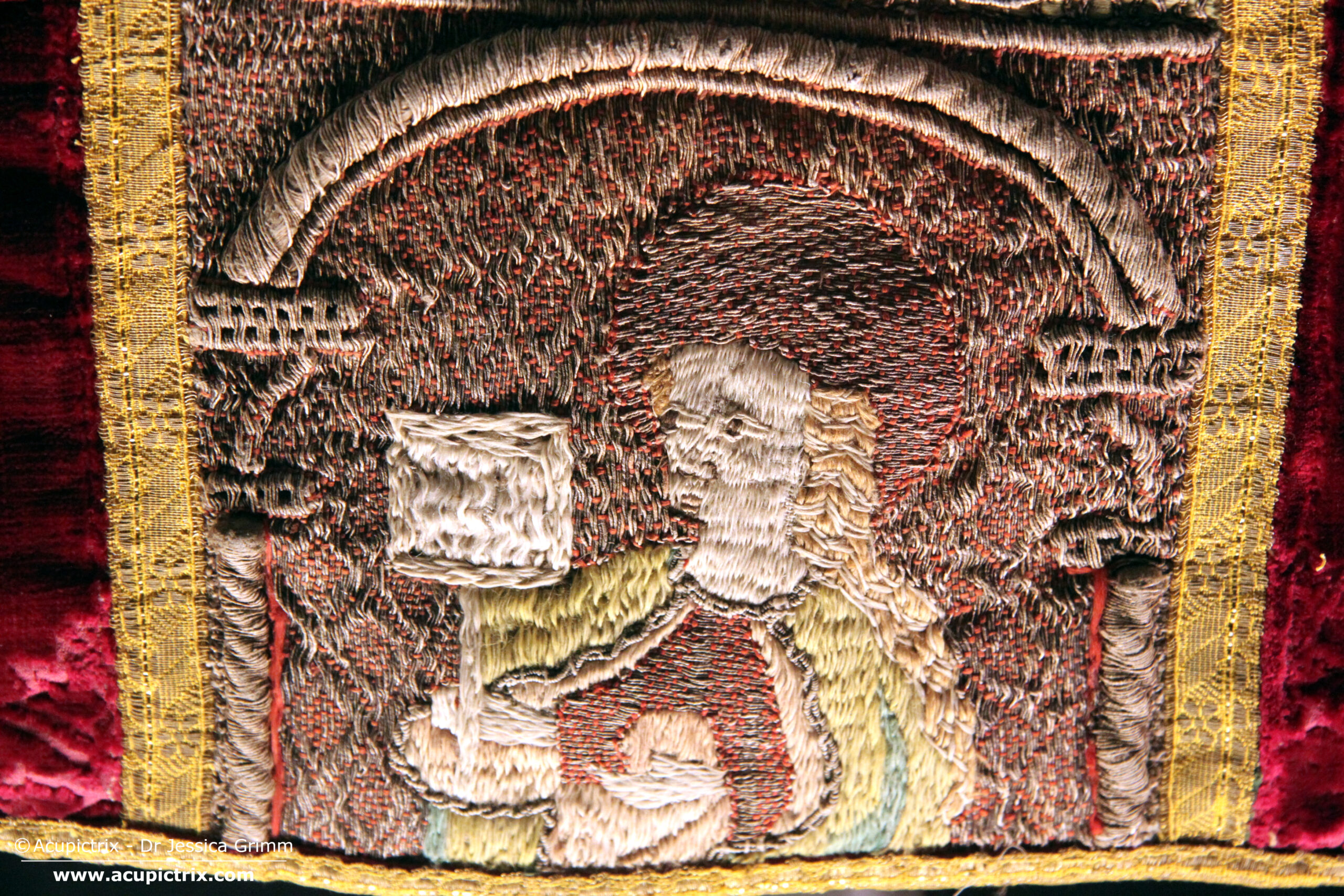
Last week, we examined a medieval goldwork embroidery chasuble with two different types of stumpwork, dating to the first half of the 15th century and made in the Franconia region of Germany. This week, I have another lovely chasuble for you that also displays medieval goldwork embroidery from two older vestments. You can see the…
-
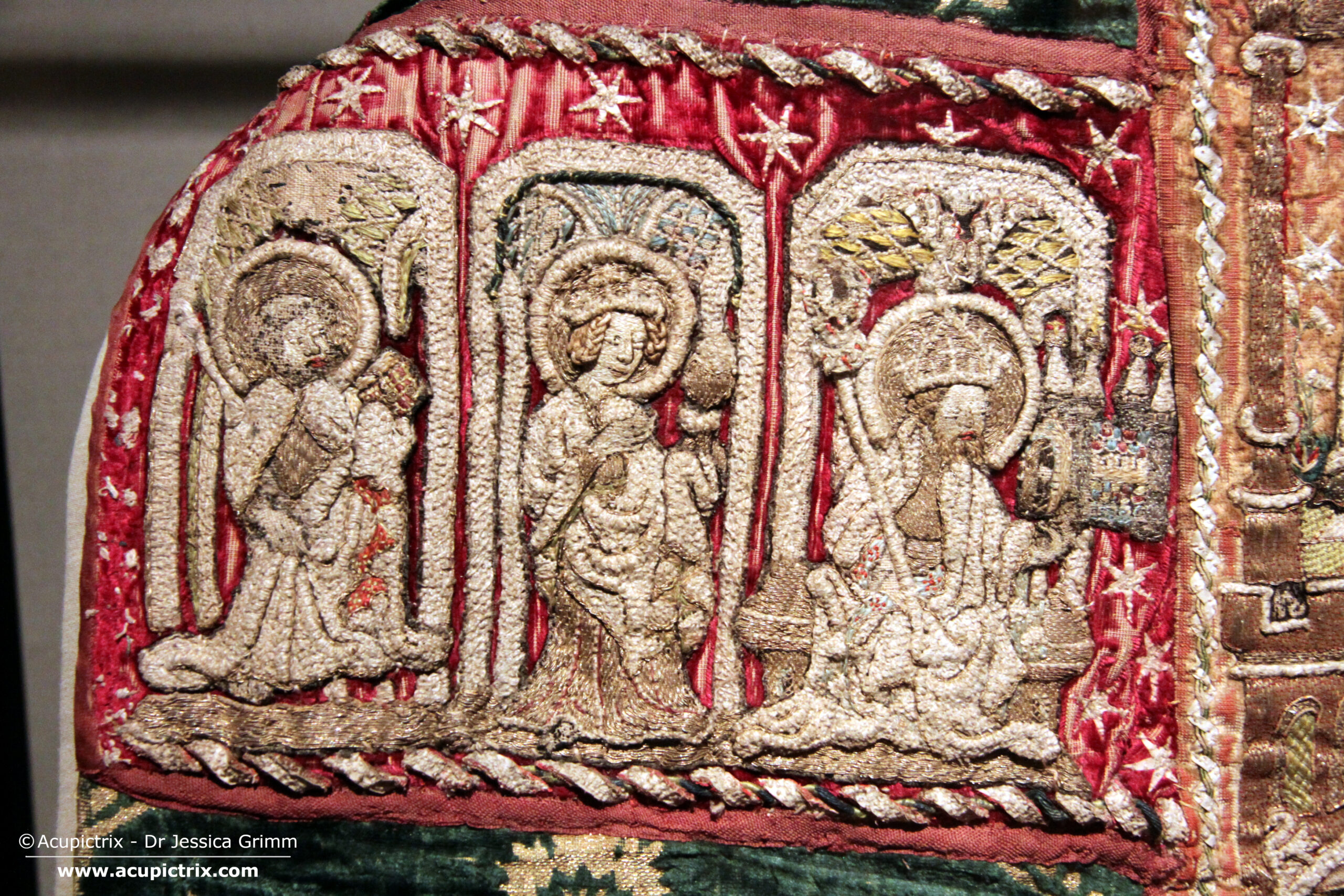
In the past months, we have examined medieval goldwork embroidery centres in Italy and England. This month, we will explore medieval goldwork embroidery made in the Franconia Region in Germany, which lies just south of the centre of Germany. Important cities include Nuremberg, Würzburg, Bamberg, Bayreuth, Ansbach, Coburg, Meiningen and Schwäbisch Hall. As far as…

